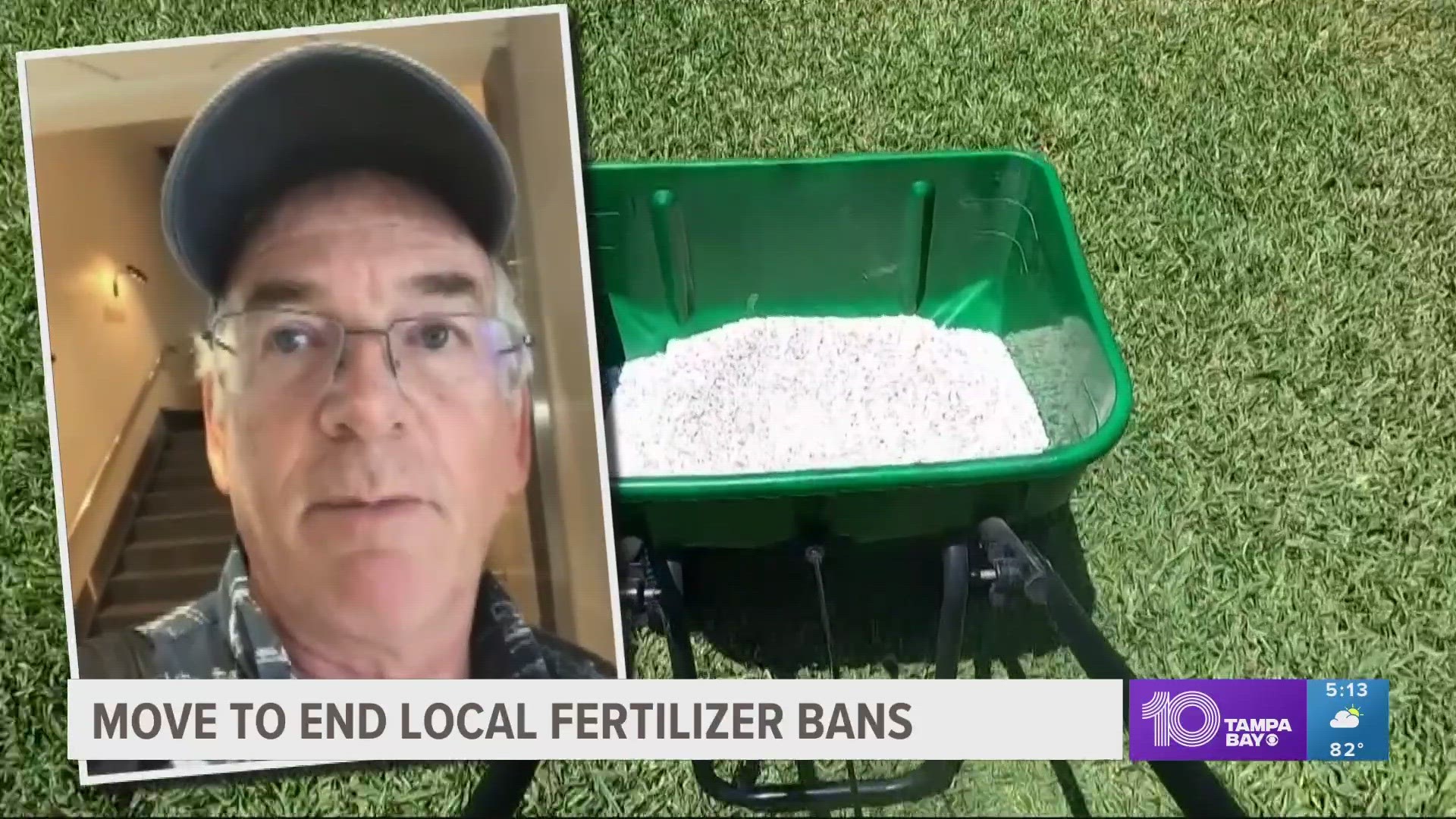SARASOTA, Fla. — According to local governments, ordinances to restrict the use of fertilizer are one of the most effective tools to protect our waterways. But a new move by lawmakers has raised eyebrows among environmentalists.
A provision that would ban local governments from creating or changing fertilizer bans for at least the next year was added to the state's budget.
Local environmentalists say the proposal is another example of poor and uninformed decision-making by some lawmakers.
"That's kind of an example of preempting good management policy developed and documented by local governments," Director of The Sarasota Bay Estuary Program Dave Tomasko said.
Tomasko said research from the University of Florida and other conservation groups has shown benefits in reducing fertilizer use on lawns during the rainy season.
To keep the waterways healthy and free of algal blooms, Sarasota County restricts the application of fertilizers containing nitrogen and phosphorous on lawns between June 1 and Sept 30.
Manatee, Pinellas, and Hillsborough counties also have similar restrictions in place.
"We're trying to manage based on millions of people, not like a couple, dozen turfgrass scientists and that's the real problem," Tomasko said. "So it's going be degradation of water quality. It's going cost us more money to try to fix something that we could've nipped in the bud."
Environmentalists say fertilizer runoff is a top nutrient pollutant in Florida's waterways. According to Tomasko, data shows that after the ban period, there are much lower levels of nutrients from runoff in certain areas.
Over the years, sustained runoff pollution has stimulated red-tide-causing algae blooms, depleted seagrass meadows and led to starvation and mass deaths of Manatees in the Indian River Lagoon
"Everything we do to add more nutrients in our waterway makes red tide worse and this is one way to like continue to make red tides worse," he said. "I think it's a mistake and we're not going to be better off. It's going to cost us money in the long term."
The one-year pause on bans would allow the University of Florida's Institute of Food and Agricultural Sciences to study the outcome for future models and policy according to lawmakers.

